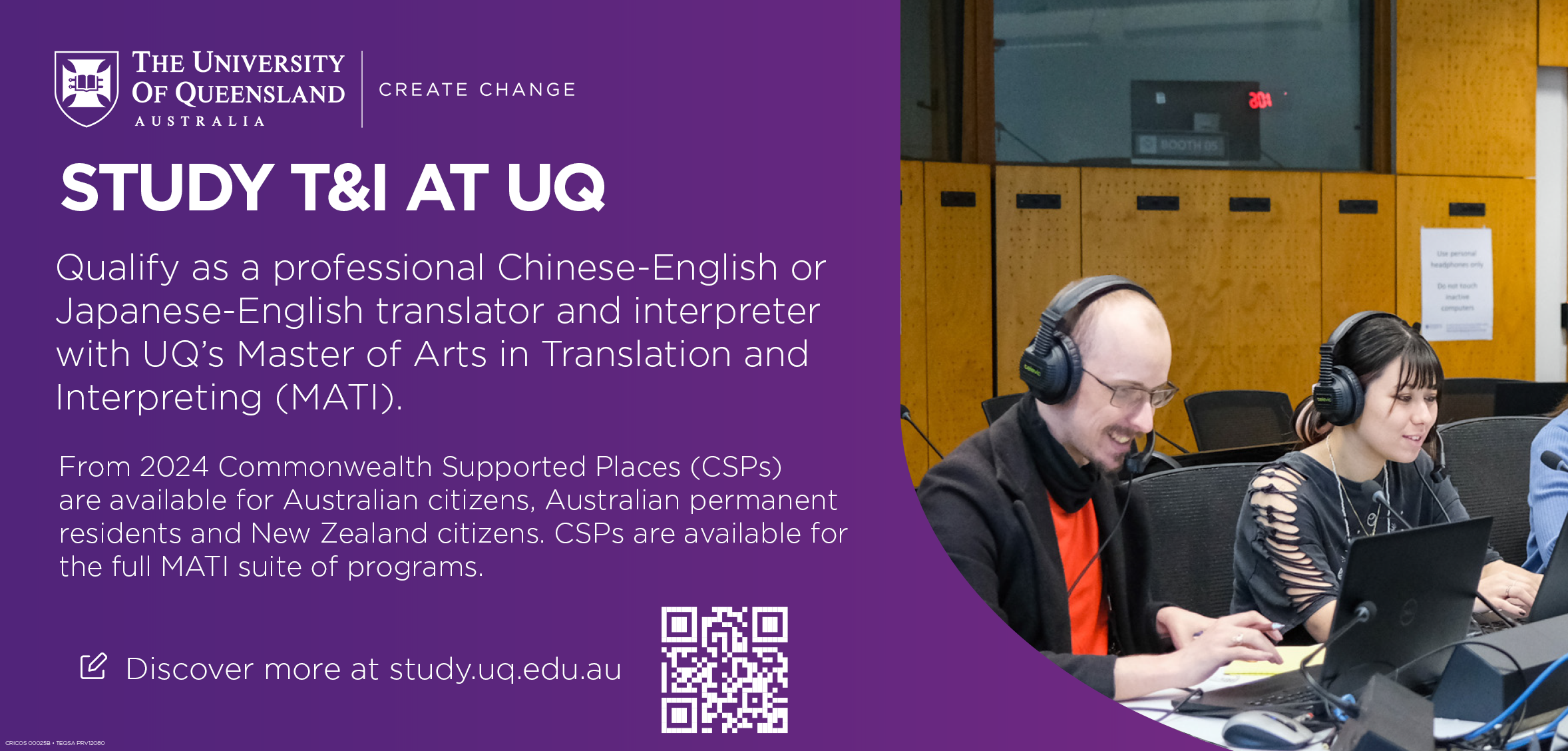HEALTH CARE INTERPRETING
Stefania Zen is the Education and Engagement Manager for Transcultural & Language Services and Narrun Wilip-Giin Aboriginal Support Unit, both run by Northern Health, the local health authority in Melbourne’s culturally diverse outer northern suburbs. Stefania regularly delivers cultural competence training to health professionals, and she explains to us what cultural competence is, why it is integral to delivering effective health care, and what role interpreters play in this.

‘It is important to recognise that ‘health equity’ is not the same as ‘health equality’.’
In a world marked by diversity, health care interpreters are invaluable allies of medical professionals, as they break down linguistic and cultural barriers to ensure equitable access to health care for all.
Their role in promoting cultural competence and patient-centred care cannot be overstated. However, with great responsibility comes great complexity, as interpreters navigate the ethical minefield of health care settings.
Within the health care context, cultural diversity encompasses a rich tapestry of languages, beliefs, customs and traditions. Yet amidst this diversity lies a challenge: ensuring equitable access to health care for all individuals, regardless of their cultural backgrounds.
It is important to recognise that ‘health equity’ is not the same as ‘health equality’. As my colleagues at North Western Melbourne Primary Health Network explain in their downloadable resource Access and Equity Framework, ‘Health equality means each individual or group of people is given the same resources or opportunities, whereas health equity recognises that each individual has different needs and may require different resources and opportunities to reach their best health.’
Barriers such as language proficiency, cultural differences and limited understanding of health care systems can impede effective communication and hinder patient outcomes. Patients with limited English proficiency experience higher rates of unnecessary diagnostic testing, as well as medication incidents and errors, compared to those whose first language is English. They also end up staying in hospital longer, and are at higher risk of readmission. In short, their health outcomes are compromised by language barriers and communication breakdowns. And unfortunately, health care providers still often ask family members to act as interpreters rather than calling on professional practitioners, even when the latter are available, highlighting the critical need for cultural competence in health care provision.
Cultural competence in health care means delivering effective, quality care to patients who have diverse beliefs, attitudes, values and behaviours. It is about recognising that we are all different, even within the same culture.
Cultural competence requires systems that can personalise health care according to the individual, and that understand the potential impacts that cultural differences can have on health care delivery and also its reception. For example, factors such as race, socioeconomic status and health literacy can influence how a patient perceives symptoms and health conditions, and when and how they seek care. They can also influence the patient’s expectations of care and their preferences regarding procedures and treatments, impact on their willingness to follow health professionals’ recommendations and treatment plans, and affect who they believe should participate in making health care decisions.
By understanding and valuing cultural diversity in health care, providers can ensure that care is respectful, inclusive, and responsive to the needs and preferences of all patients, ultimately leading to better health outcomes.
So, what does culturally competent care look like?
First and foremost, a commitment to equity for culturally and linguistically diverse patients needs to be an integral part of a health service’s strategic documents and policies. These policies should clearly state that the service will aim to provide the same quality of care to each patient, regardless of what language they speak, where they come from, what religion they practise and so on. As engaging professional interpreters (rather than relying on family members or staff to interpret) is central to such provision, a commitment to do so must be clearly embedded in the policies.
Delivery of cultural awareness and safety training for all staff members is also key to building a culturally competent and safe environment. Health care providers should be aware of their own cultural biases, and sensitive to the fact that patients may come from diverse backgrounds. They should strive to understand and appreciate the cultural norms, practices and preferences of their patients. Providers should use clear and simple language, and they should be willing to listen actively and patiently. By asking patients directly about their needs, patient-centred and culturally competent care can be achieved.
Engaging interpreters is the obvious way to support clear communications with patients who have limited English proficiency. To facilitate communication between healthcare providers and patients who speak different languages and/or come from different cultural backgrounds, the role of interpreters extends far beyond mere ‘translation’. They bridge the gaps between languages, ensuring accurate transmission of medical information while preserving cultural nuances and context. By facilitating effective communication, interpreters pave the way for patient-centred care, in which individuals feel heard, understood and respected in their unique cultural contexts.
Interpreting services should be seen not as additional to, but rather as an integral part of the multidisciplinary team looking after a patient.
The journey of health care interpreters is not without its challenges. Working in health care settings presents a range of difficulties, from navigating complex medical terminology to managing emotionally charged conversations. Interpreters often find themselves grappling with ethical dilemmas, as the principles of accuracy, impartiality and confidentiality intersect with cultural sensitivity and patient autonomy.
Furthermore, interpreters may encounter challenges stemming from cultural differences and misunderstandings. Different cultures may have varying perceptions of illness, treatment modalities and the roles of health care providers, leading to potential miscommunication or discord. Interpreters must possess not only linguistic fluency but also cultural competence, allowing them to navigate these cultural subtleties with sensitivity and respect while maintaining the boundaries of their role.
Despite the challenges they face, interpreters remain steadfast in their commitment to fostering understanding, compassion and inclusivity in health care. By embracing cultural diversity and upholding ethical principles, interpreters pave the way towards a future in which health care knows no bounds, every voice is heard, and every patient’s story is valued.
Stefania Zen holds a degree in T&I (English–Spanish) from Università Ca’ Foscari, Venice, Italy. She has worked as a freelance English–Italian T/I and as a cultural liaison officer, has been with Northern Health since 2008, and is responsible for the management of cultural competence education across all the authority’s sites. Stefania is also involved in quality improvement and research activities. She has co-authored a research paper ‘Does English proficiency improve health outcomes for patients undergoing stroke rehabilitation?’ (2015) and contributed to the development of the Migrant and Refugee Health Partnership’s Competency Standards Framework for Clinicians, titled ‘Culturally Responsive Clinical Practice: Working with people from Migrant and Refugee Backgrounds’ (2019).
Advertisement:



